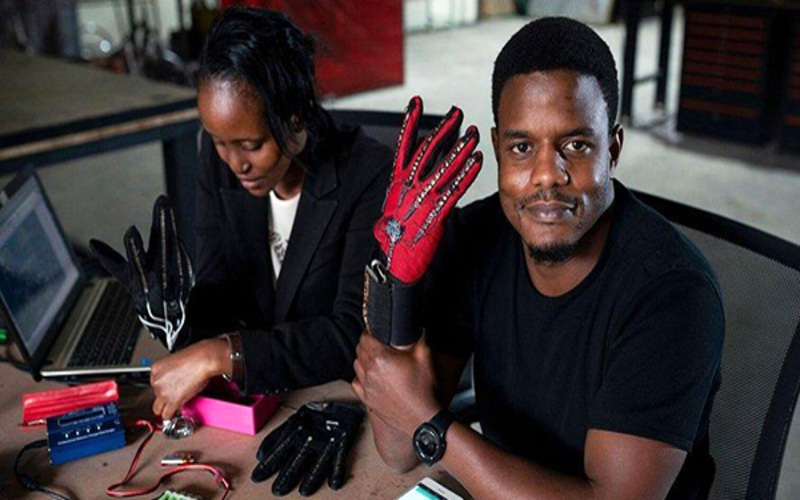Kenyan engineer and inventor Roy Allela, 25, has discovered the ideal means of removing the communication gap between hearing and deaf people. He created the Sign-IO gloves, which let deaf people “talk” to people who don’t understand sign language by converting hand gestures into audible speech.
Sensors are installed on each of the five fingers of the Sign-IO gloves to track movements, including how much a finger is bent. The movements used with the gloves are translated into spoken communication using a text-to-speech feature of Android software that Allela also created.
Allela was motivated to develop the gloves due to his family’s communication difficulties with his 6-year-old deaf niece. “When my niece puts on the gloves and connects them to either her phone or mine, she starts signing, and I can follow along with what she’s saying. She is excellent at lip reading, like other sign language users, so she doesn’t require me to sign back,” he stated in an interview with The Guardian.
The gloves were first introduced at a special needs school in rural Migori County, southwest Kenya, by the young inventor, a data science instructor at Oxford University who works for Intel. To help as many deaf or hard-of-hearing youngsters as possible, he wants it to be accessible in every school for kids with special needs.
Even though the Sign-IO gloves are still in the prototype stage of development, he has already won prizes and awards for the invention, which have assisted him in making additional advancements. It won the “Hardware Trailblazer Award” in its entirety in 2018 at the American Society of Mechanical Engineers (ASME) global finals in New York, and it placed second at the Royal Academy of Engineering Leaders in Innovation Fellowship in London.

